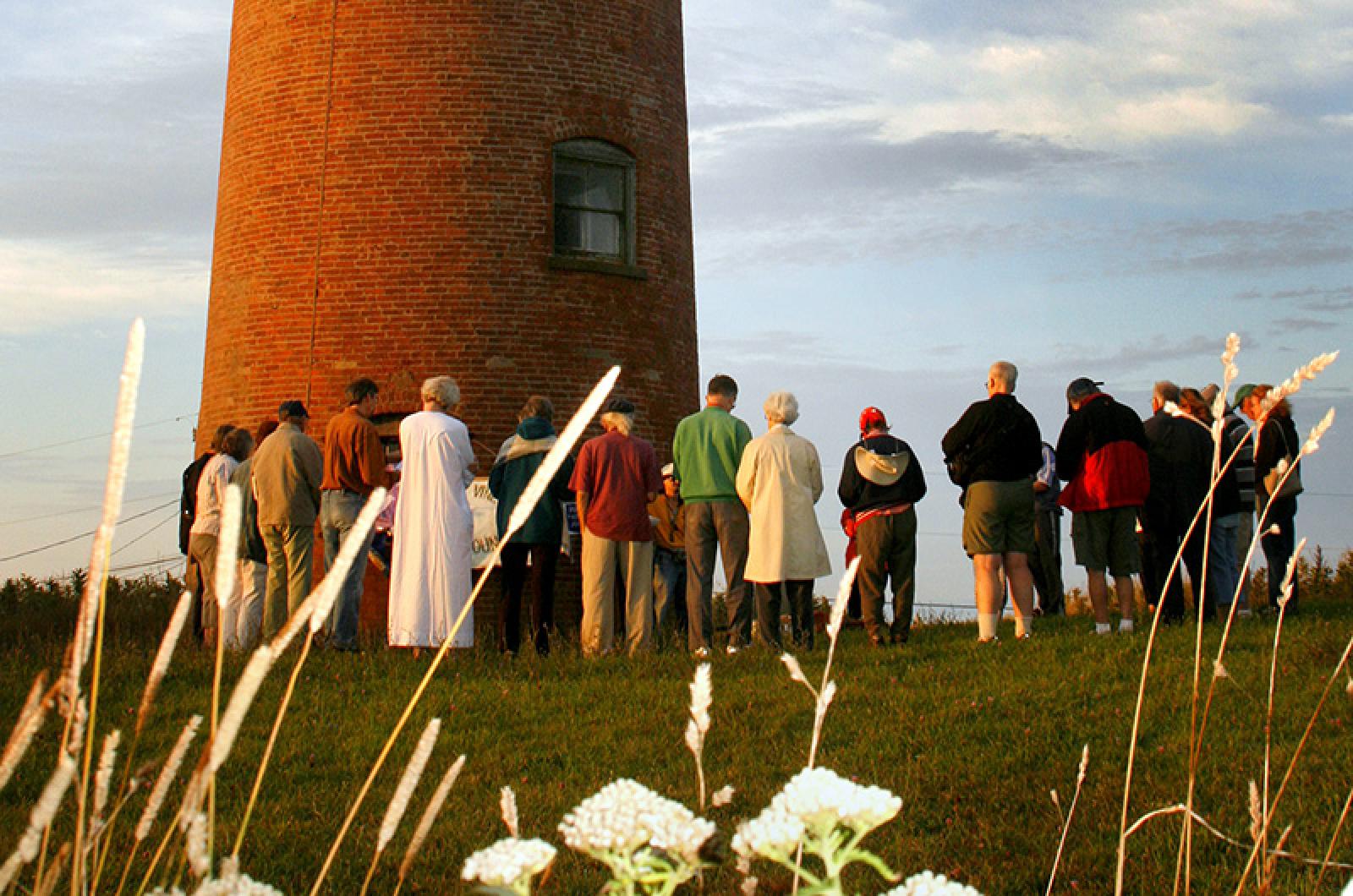It’s been many years since I last went to the Gay Head Cliffs at dawn on August 6 for the annual Hiroshima Remembrance Day ceremony, sponsored by the Martha’s Vineyard Peace Council. But the wisdom and ethics of the decision to bomb Hiroshima and Nagasaki are questions that have haunted America for 76 years. The quantum leap in warfare, and its horrific human price, have made the lingering debate inevitable. The arguments on both sides are too strong to dismiss out of hand.
My father, Walter Scheuer, who summered on the Vineyard for more than a half-century and now lies in Abel’s Hill Cemetery, served in the Pacific as an Army cryptanalyst aboard the USS Blue Ridge. (Later, his motorboat on Menemsha Pond was also named the Blue Ridge.) He probably witnessed the first successful kamikaze attack, on the HMAS Australia, during the Battle of Leyte Gulf. And he always expressed unequivocal support for President Harry Truman’s decision to drop the bomb. My dad’s reasoning was understandable, at least from his wartime vantage point. It rested on several assumptions: that the only alternative was an Allied invasion of Japan; that the planned invasion — dubbed Operation Olympic — would have cost an additional one million American lives, or nearly two and a half times the actual number of American casualties (416,000) in all theaters of World War II; and finally, that he might well have been one of those casualties.
None of these assumptions is implausible on its face, nor are they unassailable. The projected casualty numbers are debatable. The actual death toll from the two bombs is also unclear, though it hovers around 250,000, mostly civilians. What’s indisputable is that the decision to drop the bomb wasn’t widely questioned by a war-weary American public in August 1945.
As historians have since learned, however, Truman and his war planners knew something that the public did not. Intercepts of enemy radio traffic in the summer of 1945, which were only disclosed in the 1970s, revealed a vast build-up of Japanese forces — more than 600,000 troops and what remained of Japan’s air power — on Kyushu, the island targeted for the first waves of the planned assault.
That force concentration far exceeded the estimates on which Operation Olympic had been based. The radio intelligence, as historian Richard B. Frank writes, “made it virtually certain that Olympic would never have gone forward, not because it was unnecessary, but because it had become unthinkable.” Thus, by mid-1945 the invasion had been secretly taken off the table. But the American people were left believing it was still in the works.
By the time I learned of this, some years after my father’s death, other facts about the final months of the war in the Pacific had convinced me that Hiroshima and Nagasaki were, if not justified in retrospect, at least inevitable. With the outcome of the war no longer in doubt, 6,000 Americans had died in February 1945 capturing the tiny island of Iwo Jima. In May, another 12,000 were killed in the battle for Okinawa, along with more than 100,000 Japanese soldiers and civilians. For Okinawa’s defenders, it was a fanatical fight to the death in a lost cause; for the Allies, it secured at great cost an island intended as a staging area for an invasion that never came.
Few Americans at that point would have questioned the use of a new secret weapon that might bring an immediate halt to a long and needlessly bloody war — and an end to the prospect (at least as far as the public was aware) of far more bloodshed. Maybe my father was right after all — even if for the wrong reasons. I don’t know. What’s clear is that, had the atom bombs not been dropped, thousands of additional lives would have been lost on both sides.
The case isn’t closed, and never will be. But either way, it behooves us to consider Truman’s decision and its human repercussions; to understand the views of my father’s generation, which lived through and fought in World War II; and to hope that no American president ever has to make that decision again.
It behooves us all to go to the cliffs on August 6, if only in our minds and hearts, and reflect.
Jeff Scheuer lives in West Tisbury and New York city.




Comments (1)
Comments
Comment policy »